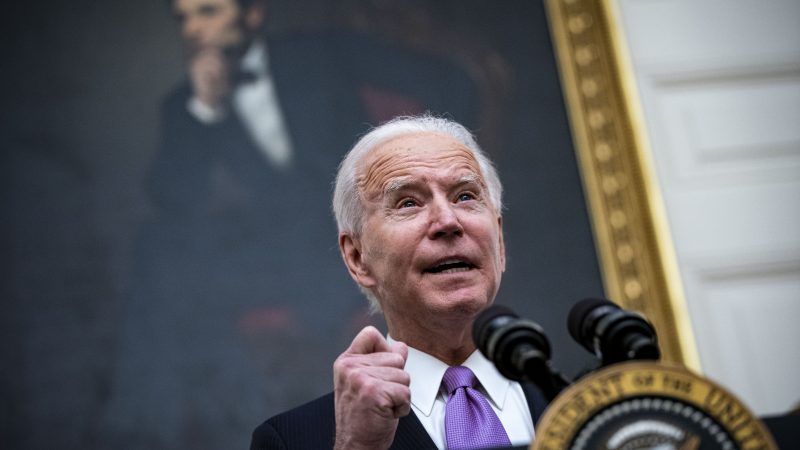Joe Biden Doesn't Want to Be Another 'Deporter in Chief'
The new president issued a 100-day moratorium on deportations.

President Barack Obama deported more immigrants than any U.S. executive leader in modern history. Then came Donald Trump, who went on to beat his predecessor in showing less mercy toward immigrants—no small feat, and one he undertook openly and honestly.
President Joe Biden, who was sworn in yesterday and served as veep to the "deporter in chief" for eight years, can best be described as a consensus politician. And if the last few years are any indication, the two-party consensus on immigration is deeply flawed. Still, if Biden is willing to buck the status quo in this area, that's a welcome sign.
On his first day in the Oval Office, the new president directed the Department of Homeland Security (DHS) to issue a 100-day moratorium on deportations for various non-citizens. Immigration and Customs Enforcement (ICE) may still remove immigrants who engaged in or are suspected of engaging in terrorism, those who are a danger to national security, those who were not yet in the country on November 1, 2020, and those who have waived rights to be in America. ICE's acting director may also move to deport someone as "required by law" after conferring with the agency's general counsel, DHS noted in a memo.
Both Obama and Trump cast a wide net when it came to deportation policy. The former's list included national security threats and individuals convicted of grave crimes, both of which generally make sense. But he also zeroed in on scores of immigrants who committed minor, nonviolent crimes—including traffic violations—or had no record at all. This after promising that his administration would focus on people who were a menace to society, as opposed to "folks who are here just because they're trying to figure out how to feed their families."
The majority of Obama's deportations, however, fell under that very group. And, as promised on the 2016 campaign trail, Trump shoved aside essentially any limitations on deportations and instituted a "zero-tolerance" policy at the southern border.
According to the DHS memo, the 100-day pause will allow the government to "ensure that our removal resources are directed to the Department's highest enforcement priorities." How the Biden administration plans to proceed in the long-term is still unclear.
On the campaign trail, the candidate initially resisted the moratorium and said in November of 2019 that he would prioritize deportations solely for those who were convicted of "a felony or serious crime." Such an outline may theoretically make sense, though it depends on how Biden, a former drug warrior, defines a "serious crime."
One offense that was big enough to merit deportation by both Obama and Trump: the mere act of crossing the border without papers. That's a Band-Aid at best and glosses over the root of the problem, which is that a high school graduate from Mexico will wait more than 100 years on average before the U.S. permits them to come here legally. When you make it impossible to do it the "right" way, is it any wonder some opt for a different route?


Show Comments (80)